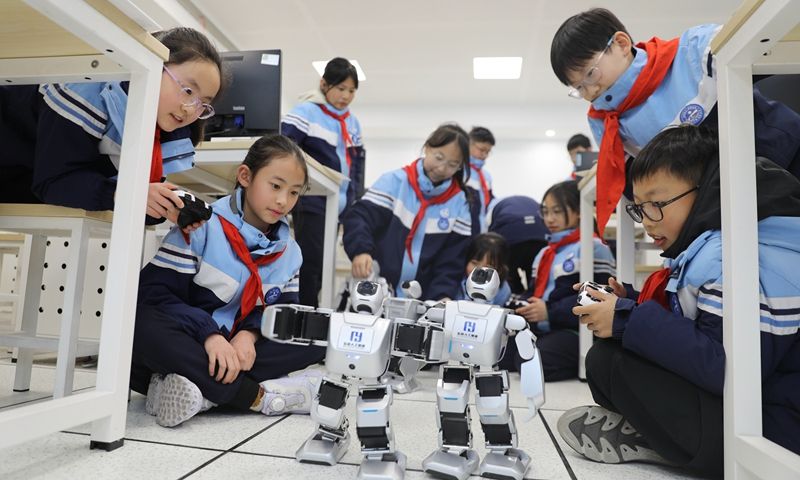Hangzhou to roll out AI general education across all primary and secondary schools

Hangzhou in East China's Zhejiang Province, the birthplace of cutting-edge "Six Little Dragons" companies including trending startups like DeepSeek and Unitree Robotics, will introduce general artificial intelligence (AI) education in primary and secondary schools starting from the new semester, with a minimum of 10 class hours per academic year, Azernews reports, citing Global Times.
The announcement was made at a press conference held on Friday by the local education bureau, which also released two documents outlining curriculum plans and AI competency standards for teachers in primary and secondary schools. The guidelines are intended to shape AI education and cultivate future talent in the field.
According to the documents, schools can use a mix of teaching formats. They may teach the courses intensively in a certain week or integrate AI contents into interdisciplinary subjects such as information technology and science.
Schools may also incorporate AI-themed projects into their local curricula, offering advanced knowledge and practical opportunities for students with interest and demand in in-depth learning. Basic AI learning activities can also be arranged during after-school programs
The documents also provide suggestions for learning content, requirements, and teaching approaches across different educational stages, according to The Paper.
In the first stage (grades 1-2), will, under teacher guidance, recognize common applications of artificial intelligence in their school environment . They will engage in simple interactions with AI devices and develop awareness of AI's role in daily life. Lessons will also emphasize responsible and ethical use, particularly the importance of protecting their personal privacy.
The documents also noted that in the second stage (grades 3-4), students will use appropriate AI tools to gather text, images, and audio resources based on various tasks from their studies and daily lives. With teacher support, they will design and produce simple projects that demonstrate their understanding of AI applications.
During the third stage (grades 5-6), students will explore AI application scenarios and examine the basic structures of models such as decision trees and neural networks. They will also learn the core principles behind algorithms including reasoning and brute-force search.
As they progress to middle school, students will engage in hands-on activities covering the full AI workflow—from data preparation and model training to model inference.
They will address real-world challenges using AI and critically evaluate generative AI. Interdisciplinary projects will foster creativity and encourage innovative thinking.
In high school, students will undertake project-based initiatives to develop skills in designing AI systems and creating intelligent agents. This experience will strengthen their ability to apply AI effectively in everyday life.
According to an earlier report, several regions in China are promoting general artificial intelligence (AI) education in primary and secondary schools, with cities like Beijing, Guangzhou, and Chengdu, Southwest China's Sichuan Province, rolling out teaching plans.
Here we are to serve you with news right now. It does not cost much, but worth your attention.
Choose to support open, independent, quality journalism and subscribe on a monthly basis.
By subscribing to our online newspaper, you can have full digital access to all news, analysis, and much more.
You can also follow AzerNEWS on Twitter @AzerNewsAz or Facebook @AzerNewsNewspaper
Thank you!
